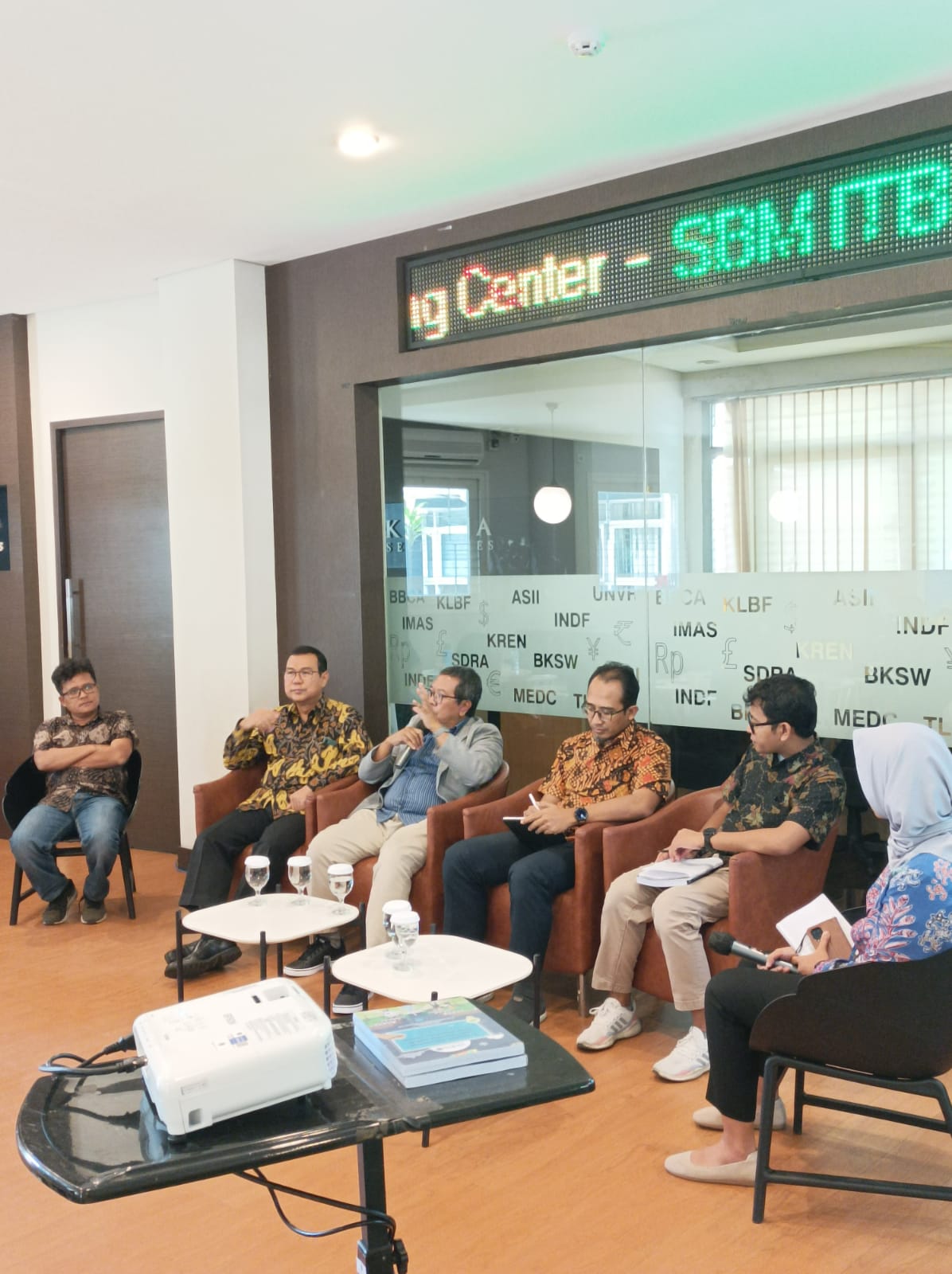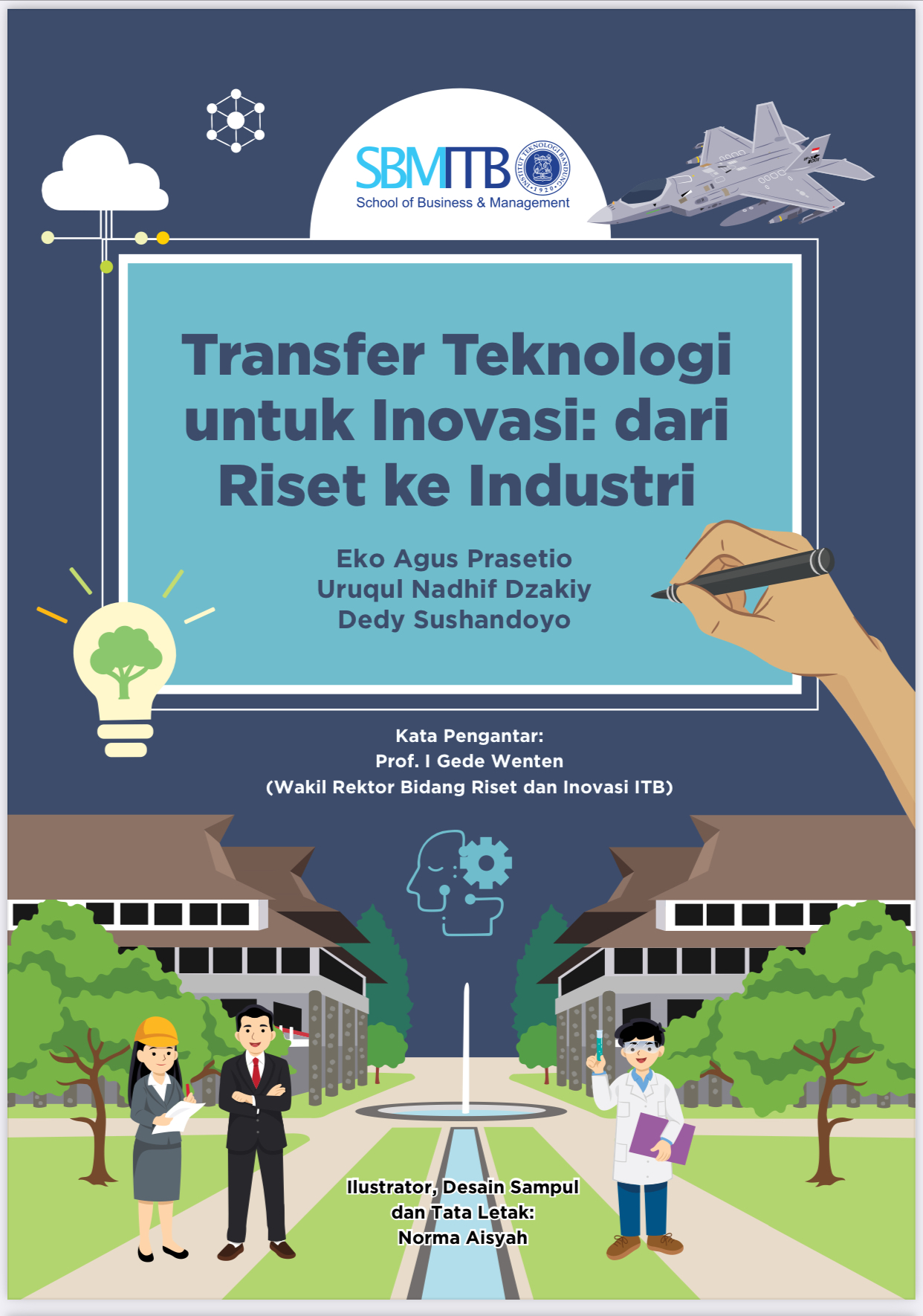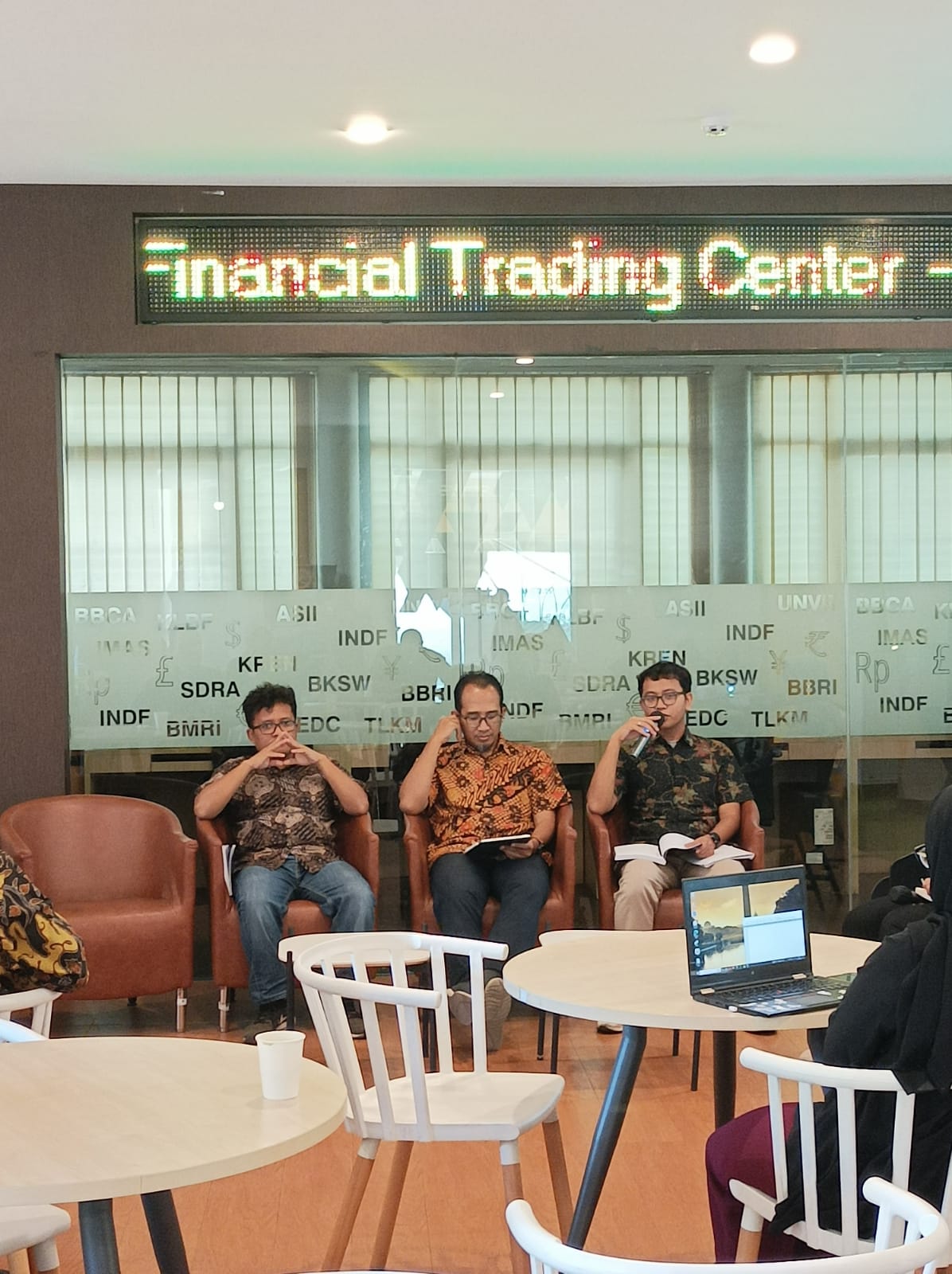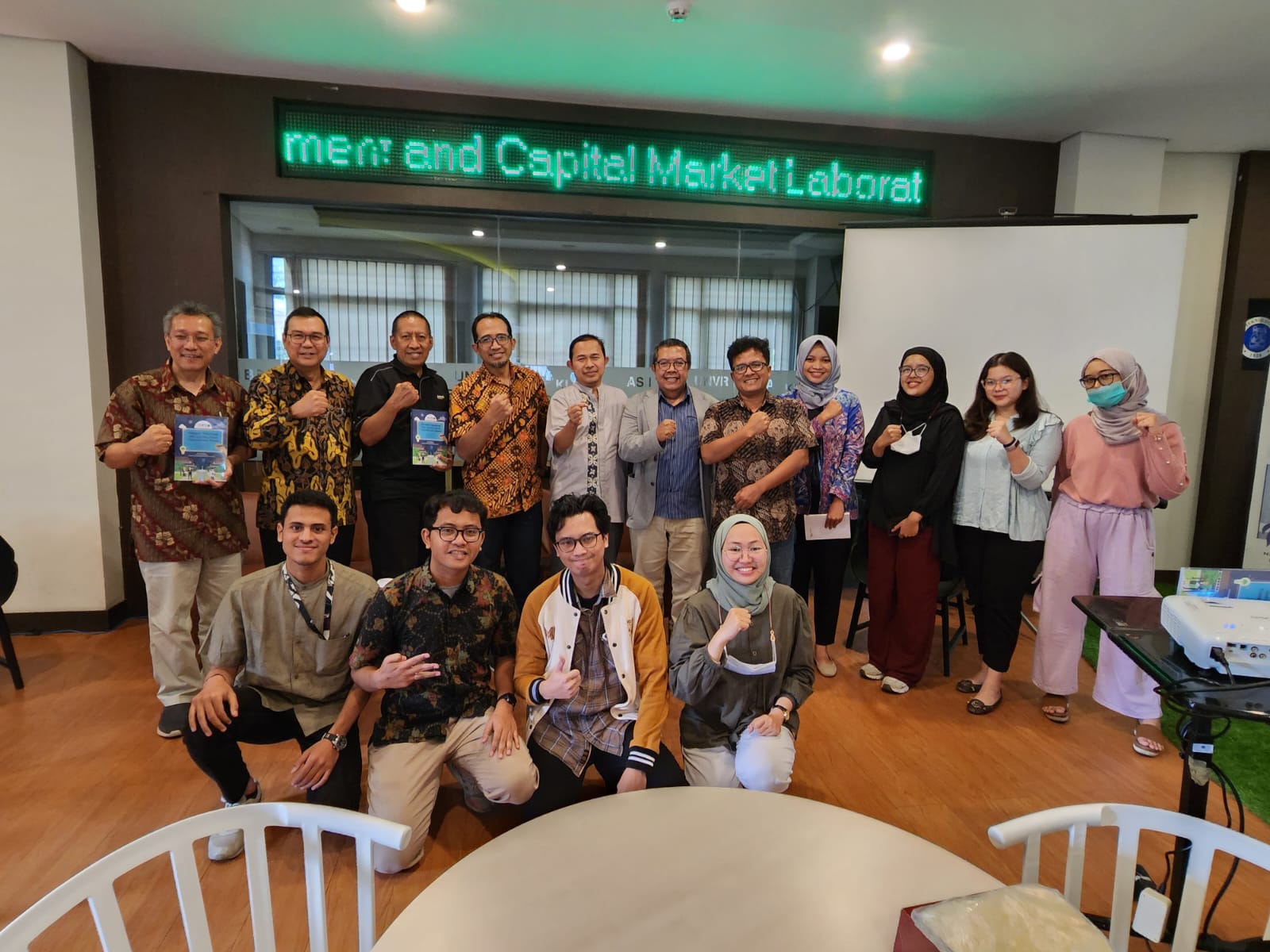
Bandung, mot.sbm.itb.ac.id – Management of Technology Laboratory School of Business and Management Institut Teknologi Bandung (MoT Lab SBM-ITB) held a book review entitled “Transfer Teknologi untuk Inovasi: dari Riset ke Industri”. The event which was held at the Kresna SBM-ITB Lobby was attended by the authors, namely Dr.rer.pol. Eko Agus Prasetio, Dedy Sushandoyo, PhD, and Uruqul Nadhif Dzakiy, MT. All three are researchers at the SBM-ITB Management of Technology Laboratory (MoT Lab). This event was opened by Prof. Pulung Nurprasetio as Acting Deputy Dean of Resources of SBM-ITB and also presented two important speakers namely Ir. Ibnu Susilo (Founder & CEO of FIN Komodo) and Joko Sarwono, PhD. (Chairman of LPIK-ITB).

“We hope that writing this book is for the greater good of the future and can also create a multiplier effect”, hoped Pulung to open this event.
Technology Transfer Through Three Channels
At the beginning of the event, the three book authors took turns giving brief explanations regarding the description of the book. The first author, Eko Agus Prasetio, gave an explanation regarding the urgency of technology transfer for innovation, followed by Uruqul Nadhif who gave an explanation of how this technology transfer initiation was carried out in Indonesia by raising several case studies in Indonesia such as FIN Komodo, Katalis Merah Putih, Vent-I , microcapsule, and the development of KF-X/IF-X. Finally, Dedy Sushandoyo gave an explanation regarding lessons that can be taken (lesson-learned) from the story of technology transfer from research to industry.

(Dedy Sushandoyo-Eko Agus Prasetio – Uruqul Nadhif Dzakiy, from left to right)
The first speaker, Eko Agus Prasetio, explained an overview of the book where the idea for this book was compiled before the pandemic and was set for the public. In the book, we describe various case studies ranging from technology transfer carried out in-house by industry, technology transfer for institutional strengthening, and technology transfer carried out by universities. “In this book, we deliberately take three cases of technology transfer from several channels, either originating from in-house developed industries, technology transfers carried out to strengthen institutions, or technology transfers carried out by universities.”, said Eko.
Even so, this book still has homework to improve its content, namely by forming a framework on the pattern of technology transfer from the three types of channels. This book has not reached that stage due to time considerations. “We still have homework to improve this book by developing a technology transfer framework from in-house development, university-developed technology, and advanced engineering”, said Dedy.
Lesson from FIN Komodo
After the presentation session from the panelists ended, the event continued with a sharing session from the Founder and CEO of FIN Komodo, Ir Ibnu Susilo. FIN Komodo is a local automotive company located in Cimahi City, West Java, which produces off-road cars. In his presentation, Ibnu Susilo revealed that the idea behind developing the Komodo fin was motivated by the idea of connecting villages through the development of a vehicle that is as tough as a jeep and as comfortable as a sedan. At the beginning of development, Ibnu revealed that in the early days it was difficult to get financing from the Bank which at that time was refused. Luckily he got a project that could help with initial funding. “To fund initial prototype development, I worked on an aircraft parts development project in Malaysia. It was that capital that helped in the early days of developing FIN Komodo”, said Ibnu.

Ibnu said that the important thing in industrial development is the brainware component that lies in the human being. That’s why at the beginning, Ibnu through FIN fostered up to dozens of SMEs in order to be able to supply the development of the Komodo FIN to the production stage. Currently, this company is 17 years old where the car being developed has entered its fifth generation since 2005 when it was first developed. “The development of technology-based industries lies in the people or the brainware”, added Ibnu.

The next speaker is Joko Sarwono, PhD. who is the chairman of the Institute for Innovation and Entrepreneurship Development (LPIK) ITB. He told about the challenges of developing research and innovation on campus by taking best practices from the Innovation and Entrepreneurship Development Institute (LPIK). He revealed that LPIK implements 3 focuses, namely innovation research as measured by the level of technology maturity (Technology Readiness Level-TRL), entrepreneurship development, and technology transfer office (TTO). Furthermore, Joko explained the obstacles to innovation in higher education, namely on the side of being too focused on quantity and regulations that do not support it.
“One of the obstacles to innovation in higher education is because the size of innovation is still limited to the KPI (Key Performance Index) in terms of quantity. Apart from that, the regulations are not impartial. For example, ITB has been developing electric cars since 2010 but until now it cannot be said to be successful because support such as regulations is not sufficient.”, said Joko.

This event was attended by many parties from SBM-ITB and externally. Several ITB professors attended this event such as Prof. Togar Simatupang (Professor of SBM-ITB supply chain), Prof. Aurik Gustomo (Professor of Human Capital Management SBM-ITB), Prof. Dermawan Wibisono (Professor of Operations and Performance Management at SBM-ITB), and Prof. Wawan Dhewanto (Professor of Entrepreneurship at SBM-ITB). The event was held in collaboration with MoTLab SBM-ITB and Human Capital Development SBM-ITB.

